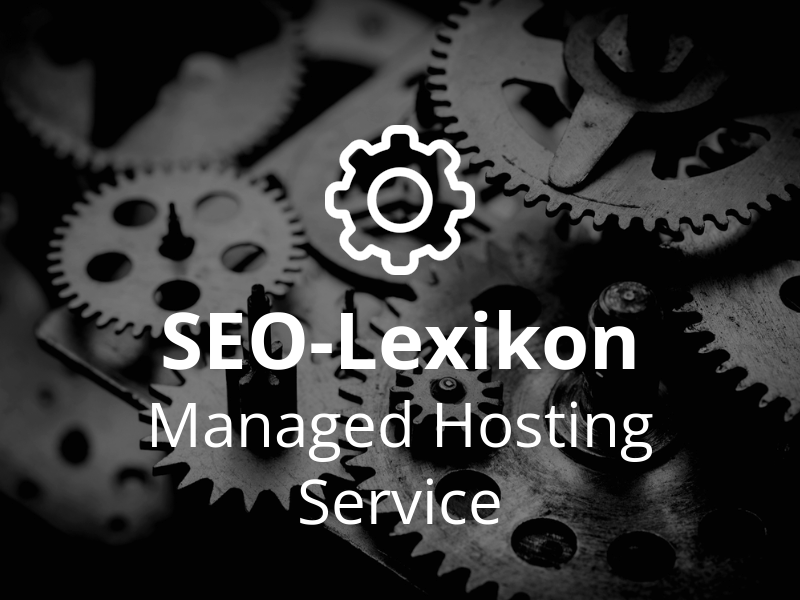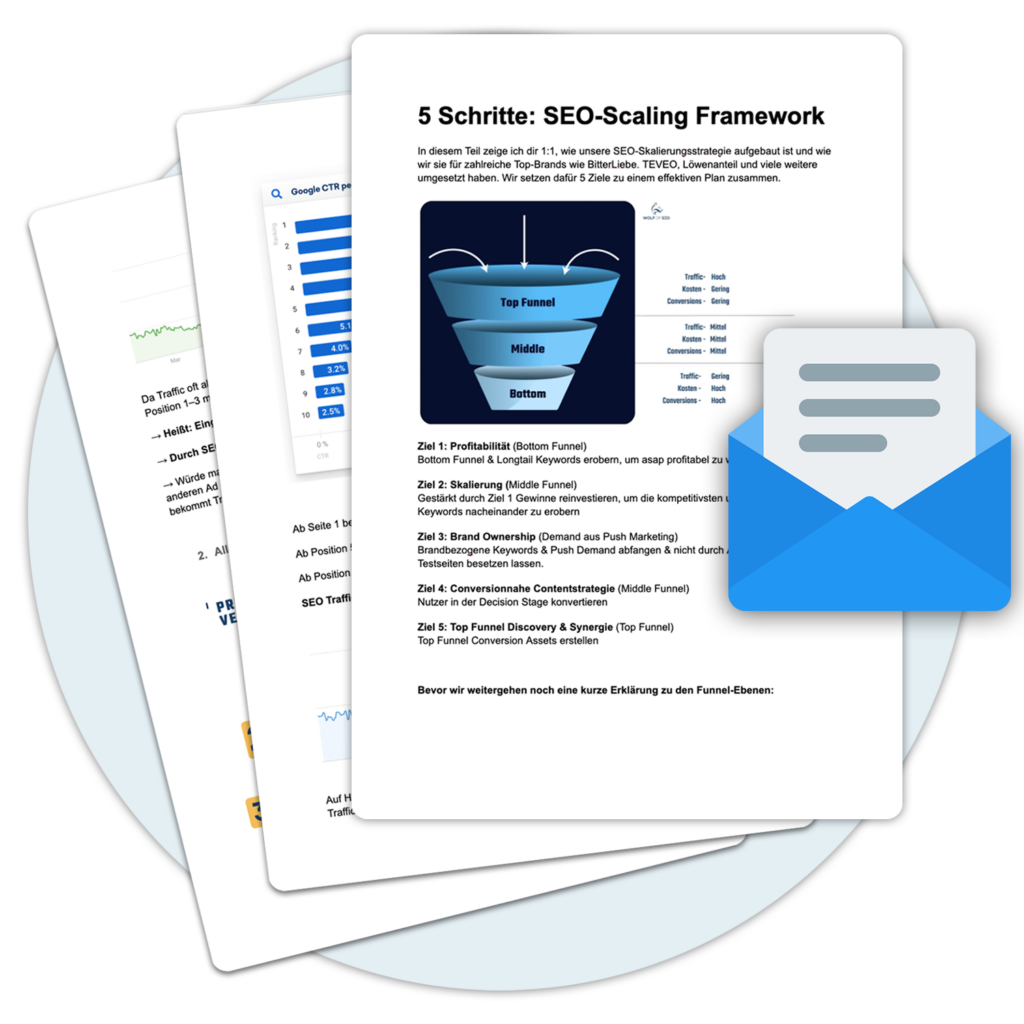What is a managed hosting service?
A Managed hosting service refers to a hosting service where the hosting provider takes over the management and maintenance of the server. In contrast to a shared hosting service, where you share the server with other users, with a managed hosting service you have your own dedicated server.
With a managed hosting service, the provider takes care of the technical aspects such as software updates, security patches, backups and monitoring server availability. This allows you to concentrate fully on your website or online store without having to worry about the technical details of server management.
Why should you consider a managed hosting service?
A Managed hosting service offers numerous advantages and is an efficient solution for many companies to optimize their online presence. Here are some reasons why you should use a Managed hosting service should consider:
- Relief for your own IT team: By commissioning a Managed hosting service experienced experts take responsibility for managing and maintaining the hosting infrastructure. This allows your internal IT team to concentrate on strategic tasks.
- High availability and reliability: A high quality Managed hosting service ensures optimal server availability and minimizes downtime. This is particularly important to ensure the smooth availability of your website and avoid potential sales losses.
- Optimum performance and speed: Through professional configuration and optimization of the hosting server, a Managed hosting service ensure a fast loading time and high performance of your website. This is crucial for a positive user experience and a better user experience. Ranking in the search engine results.
- Increased security: A qualified Managed hosting service implements extensive security measures to protect your website from potential threats. This includes protection against DDoS attacks, regular updates of security patches and round-the-clock system monitoring.
Through a Managed hosting service you can benefit from the expertise and experience of a dedicated team and ensure that your website is run optimally. At the same time, you can use your resources more effectively and concentrate on your core business.
Advantages of a managed hosting service
A Managed hosting service offers numerous advantages for companies that want to host their websites or applications online.
- Technical support: With a Managed hosting service you will receive technical support from experts who will help you set up, configure and maintain your server infrastructure.
- Reliability and stability: Professional managed hosting services offer high server availability and reliability so that your website or application is always accessible and runs smoothly.
- Time saving: By outsourcing the server management to an external Managed hosting service you can concentrate on your core business and save time for other tasks.
- Safety: Managed hosting services offer comprehensive security measures to protect your data and your website from threats such as hacking, malware and DDoS attacks.
- Scalability: A good managed hosting solution allows you to scale your resources quickly and easily as required without having to worry about the technical aspects.
Possible disadvantages of a managed hosting service
A number of possible disadvantages are associated with the use of a Managed hosting service connected. Although these services offer many advantages, there are some factors that can potentially be negative:
- High cost: A high quality Managed hosting service can be expensive and may not be suitable for every budget.
- Limited control: As the hosting service is managed by an external company, you may have less control over the server configuration and settings. This can limit your flexibility, especially if you have specific requirements.
- Dependence on the hosting provider: If you are interested in a Managed hosting service you are heavily dependent on your hosting provider. In the event of problems or conflicts, you will need to rely on the provider's support.
- Limited scalability: Decide in favor of a Managed hosting servicescalability may be limited. Depending on the provider's offerings, it may be difficult to quickly expand your resources when needed.
- Limited customization options: Due to the standardized nature of managed hosting services, it can be difficult to implement customized solutions or individual configurations.
Features of a high-quality managed hosting service
A high-quality managed hosting service is characterized by several features that can be decisive for the success and efficiency of your online presence.
- Server availability and reliability: A high quality Managed hosting service should offer high server availability to ensure that your website is accessible at all times. A reliable infrastructure and a robust network are essential to minimize downtime.
- Performance and speed: A fast loading time and high performance of your website are crucial for the user experience and search engine rankings.Ranking. A good Managed hosting service optimizes the server configuration and uses powerful hardware to ensure optimum performance.
- Safety measures: A comprehensive and robust security infrastructure is essential for a high-quality Managed hosting service essential. This includes regular backups, firewalls, protection against DDoS attacks and malware scans to protect your data from loss and unauthorized access.
Server availability and reliability
Server availability and reliability are decisive factors when using a managed hosting service. A high-quality service provider should ensure that the servers provided are continuously online and have no extended downtimes. High server availability ensures that your website is accessible at all times and that potential customers are not lost due to unavailable pages.
Server reliability refers to their stability and performance. A good Managed hosting service ensures that the servers always function optimally and have sufficient resources to handle your website's data traffic. A stable server minimizes the likelihood of performance problems such as long loading times or crashes.
| Advantages | Disadvantages |
|---|---|
|
|
Performance and speed
The performance and speed of a managed hosting service are key factors that can affect your website or application. A high-quality service should offer a fast loading time and a high response speed to ensure an optimal user experience.
Optimal performance ensures that your website loads quickly and visitors do not have to wait long. This is particularly important, as slow loading times can lead to an increase in the bounce rate and the loss of potential customers.
A Managed hosting service with high speed also allows you to process large amounts of data quickly and reliably. This is important to ensure the smooth operation of your website or application, especially if you have a large number of users or transactions.
To assess the performance and speed of a managed hosting service, you can take various factors into account:
- Server locations: The closer the server locations are to your target market, the faster your website can be loaded.
- Server configuration: A high-quality service uses modern technologies, such as SSD hard disks and high-performance processors, to enable faster processing.
- CDN integration: The integration of a Content Delivery Networks (CDN), static content such as images and videos can be loaded faster.
- Caching-techniques: The use of Caching-techniques enables the server to provide frequently requested content more quickly, which shortens the loading time.
By paying attention to high performance and speed, you can ensure that your website or application runs smoothly and that your users are satisfied.
Security measures
A high quality Managed hosting service is characterized by extensive security measures to ensure the integrity and confidentiality of the hosted data.
The most important safety measures include
- Firewalls: A firewall is an essential security measure that monitors data traffic and blocks unauthorized access. It protects the server from potential external attacks.
- DDoS protection: A good Managed hosting service offers protection against distributed denial-of-service (DDoS) attacks. This prevents the server from going offline due to an overload caused by the attack.
- Regular security updates: The provider should carry out regular security updates to close known vulnerabilities and secure the servers against new threats.
- Monitoring and intrusion detection: A reliable Managed hosting service monitors the server around the clock for suspicious behavior and detects potential attacks at an early stage so that it can intervene quickly.
- Backup systems: Regular backups of data are an important part of security measures. In the event of a server failure or data loss, the data can be restored quickly.
- Access control: Access to the server should be restricted to authorized persons. This can be ensured by strong passwords, two-factor authentication or other access control mechanisms.
A Managed hosting service with robust security measures provides effective protection against potential threats and minimizes the risk of data loss or service interruptions.
How to choose the right managed hosting service
When choosing a managed hosting service, there are several important factors to consider to ensure you get the right service for your needs. Here are some tips to help you make the right decision:
- Identify your requirements: Before you decide on a Managed hosting service it is important to identify and understand your requirements. Consider factors such as the required storage space, the expected number of monthly visitors to your website and the required computing power.
- Check availability and reliability: Make sure that the Managed hosting service offers high availability and reliability. Check the provider's downtimes and server monitoring to ensure that your website is always available.
- Performance and speed: A fast and powerful Managed hosting service is crucial for the user experience of your website. Check the data centers and the hardware used by the provider to ensure that your website can be loaded quickly.
- Safety measures: The security of your data and your website should be a top priority. Find out about the provider's security measures, such as firewalls, regular backups and attack prevention, to ensure that your website is protected from threats.
When choosing a managed hosting service, you should also consider the pricing model and costs. Compare the different offers and make sure that you get value for money that meets your requirements.
Customer support and services are also important factors when choosing a managed hosting service. Check the availability and response time of customer support and find out about the services offered, such as technical support and migration services.
To find the right Managed hosting service it is advisable to compare different providers and to inform yourself well in advance. Read customer reviews and testimonials to gain an insight into the quality and reliability of the provider.
Overall, it is important to carefully Managed hosting service that meets your performance, security and support requirements. By considering the above factors, you can ensure that your website runs efficiently and reliably.
Important factors in the selection process
There are some important factors to consider when choosing a managed hosting service. Here are some of them:
- Performance and capacity: Make sure that the hosting service offers sufficient performance and capacity to meet the requirements of your website. Check the specifications of the server, such as CPU, RAM and storage space, to ensure that they meet your requirements.
- Scalability: Check whether the Managed hosting service is scalable and can meet your future needs. You want to ensure that your hosting service can keep up with the growth of your website, without additional costs or interruptions.
- Backup and restore functions: Make sure that the hosting service performs regular backups of your data and enables easy recovery in the event of an emergency. A reliable backup and restore function is crucial to avoid losing important data.
- Safety measures: Make sure that the Managed hosting service provides adequate security measures to protect your website from threats such as hacking and data loss. Important security features include firewalls, intrusion detection systems and regular security updates.
- Support and customer service: Check the availability and response time of customer support. You want to make sure you get fast support when problems arise with your hosting service. Good customer service is crucial to ensure the smooth operation of your website.
Price model and costs of a managed hosting service
The pricing model and costs are important factors when choosing a managed hosting service. There are various pricing models that can vary depending on the provider. The costs can also vary depending on the services offered and the scope of services.
Some important factors that can influence the costs are:
- Scope of services: The scope of the services offered, such as server management, security measures and software updates, can influence the costs.
- Scalability: The possibility of scaling the hosting package according to requirements can lead to different prices.
- Contract term: The contract term can have an impact on the costs. As a rule, long-term contracts are cheaper than short-term ones.
- Additional services: Additional services such as database management or SSL certificates can be added to the total cost.
It is important to compare the prices and services of the various providers in order to find the best Managed hosting service for your individual requirements. When choosing, not only the price, but also the quality of service and customer support should be taken into account.
Customer support and services
Customer support and services are crucial factors when choosing a managed hosting service. It is important to find a provider that offers excellent customer service and responds efficiently to problems or requests. Good customer support should be available around the clock and respond quickly to requests to minimize potential downtime and problems.
A high quality Managed hosting service should also offer a wide range of services that meet the various requirements and needs of customers. These include, for example, regular backups, server monitoring, automatic scalability and daily security updates. A comprehensive range of services ensures smooth operational management and allows customers to focus on their own business instead of having to worry about technical aspects.
Accessibility and response time
Another important aspect of customer support is the availability and response time of the hosting provider. It is important that the provider is easily accessible and responds quickly to inquiries. A good provider should guarantee an appropriate response time and be available at all times for questions or problems.
One way to check the availability and response time is to read customer reviews and experiences. In this way, you can get an idea of how a provider's customer support actually works and how satisfied other customers are with the service.
Accessibility and response time
Availability and response time are decisive factors when choosing a managed hosting service. You need to ensure that your hosting provider is available around the clock and responds quickly to your requests. A fast response time is particularly important in the event of technical problems or outages.
You can use various methods to check the availability and response time of a provider:
- Check the provider's support channels, such as telephone, email or live chat. Make sure that these are available around the clock.
- Read reviews and experiences of other customers to get an impression of customer satisfaction and the response time of the provider.
- Ask the provider about their average response times and guarantee high availability.
A high quality Managed hosting service will ensure high accessibility and fast response time. This is particularly important to ensure that your website is always online and accessible and that a quick solution can be found to any problems that may arise.
Summary and concluding thoughts
A Managed hosting service is a popular solution for companies that want to manage their website or online applications without having to worry about the technical aspects. It offers a range of benefits such as improved server availability, higher performance, enhanced security measures and professional customer support.
Several important factors should be considered when selecting a managed hosting service. Reliability, speed and security measures are key features of a quality service. It is also important to evaluate customer support and services to ensure that all requirements are met.
Another point to consider is the cost. There are different pricing models for managed hosting services, which can vary depending on a company's individual needs and requirements. It is advisable to compare the different options and determine the best price-performance ratio.
Overall, a Managed hosting service the ability to outsource the technical effort and responsibility of managing a website or application, allowing companies to focus on their core business. It is important to choose a high-quality service that meets individual requirements to ensure the best possible user experience.
« Back to Glossary Index






